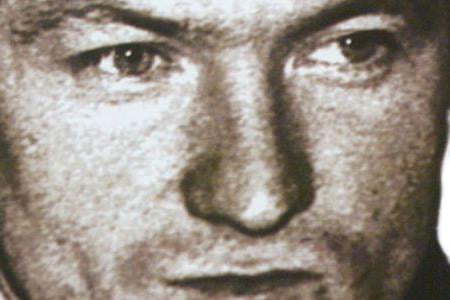
Pat Finucane (1949 – 1989)
We excel at telling other countries how good we are. One of our boasts is about the rule of law – Mother of Parliaments, London as the global legal centre, centuries-old democratic traditions, the pragmatism of the common law, and all that.
We also excel at telling other countries what to do. The Law Society regularly sends letters to other governments, urging them to comply with the rule of law. I support them in doing that. They are not the only bar to send such letters.
For instance, just a few days ago, the Law Society urged the Turkish government to ensure that the case of a murdered human rights lawyer will be heard by an independent and impartial tribunal, so that the perpetrators can finally be brought to justice. He was Tahir Elçi, former president of the Diyarbakir Bar Association, who was shot dead during a press conference in 2015.
But we are not so good at examining ourselves. Terrible things happen occasionally to lawyers in the UK too – very rarely, fortunately. This is the opening paragraph of a Supreme Court judgment from last year:
‘On the evening of 12 February 1989, gunmen burst into the North Belfast home of Patrick Finucane, a solicitor. He was having supper with his wife and three children. In their presence he was brutally murdered. He was shot 14 times. Mrs Finucane was injured by a ricocheting bullet which struck her on the ankle. This shocking and dreadful event still ranks, almost 30 years later, as one of the most notorious of what are euphemistically called “the Northern Ireland troubles”.’
A solicitor was assassinated in the UK, presumably for his work as a solicitor. He was a high-profile Catholic solicitor who acted for republican paramilitary suspects. (He was not the only solicitor killed in the Troubles. Rosemary Nelson was assassinated 10 years later.)
Mr Finucane’s murder has an unusual element because, as a previous independent reviewer into state involvement in his murder found: ‘… I am left in significant doubt as to whether Patrick Finucane would have been murdered by the UDA in February 1989 had it not been for the different strands of involvement by elements of the state….’ David Cameron himself said that there were ‘frankly shocking levels of collusion’ between the assassins and agents of the state in this case.
In its judgment from last year, the Supreme Court held that the government had previously given an unequivocal undertaking to hold a public enquiry into Mr Finucane’s death, and that his widow had a legitimate expectation that there would be such an enquiry, which has not so far taken place.
A few days ago, the secretary of state for Northern Ireland, while not ruling out a public enquiry in the future, blocked it for now and referred the matter back to the Police Service of Northern Ireland and the Police Ombudsman of Northern Ireland.
The Law Society of Northern Ireland, which has had the complex task of balancing the interests of solicitors from all sides during and after the Northern Ireland Troubles, issued a brief statement after the Secretary of State’s announcement. It recalled the Supreme Court judgment, and noted with concern that the Secretary of State had decided not to establish a public enquiry at this time.
This issue has ramifications abroad, too. Just before the secretary of state’s announcement, a bipartisan group of 24 members of U.S. Congress wrote to the prime minister, calling on the UK to end years of delay and establish an independent public enquiry into collusion in the Finucane murder. This is rather like the letters that the Law Society sends to other countries, except that it was addressed to our government for a change.
The issues in Northern Ireland are horribly complicated. Here is one example of its challenges: are more resources going into enquiries relating to murders by one side rather than the other? If there is a public enquiry into Patrick Finucane’s death, why not into X, Y and Z?
I think that, as solicitors, we should not be concerned with the side from which a lawyer is said to come. Our concerns should be for the fate of lawyers when they are acting in their capacity as lawyers. A solicitor was killed here, and there is credible evidence of state collusion. That is why the Law Society writes letters to foreign governments on behalf of murdered lawyers, not because we support their clients’ causes but because we support lawyers being able to carry out their duties without intimidation or harassment.
Doubtless other countries’ domestic circumstances are as complicated and morally taxing as those in Northern Ireland. Things always look simpler from far away.
If Tahir Elçi deserves our attention, so should Patrick Finucane. Should we not start at home?
by Jonathan Goldsmith | Law Gazette
Jonathan Goldsmith is Law Society Council member for EU matters and a former secretary general of the Council of Bars and Law Societies of Europe. All views expressed are personal and are not made in his capacity as a Law Society Council member nor on behalf of the Law Society
You must be logged in to post a comment.